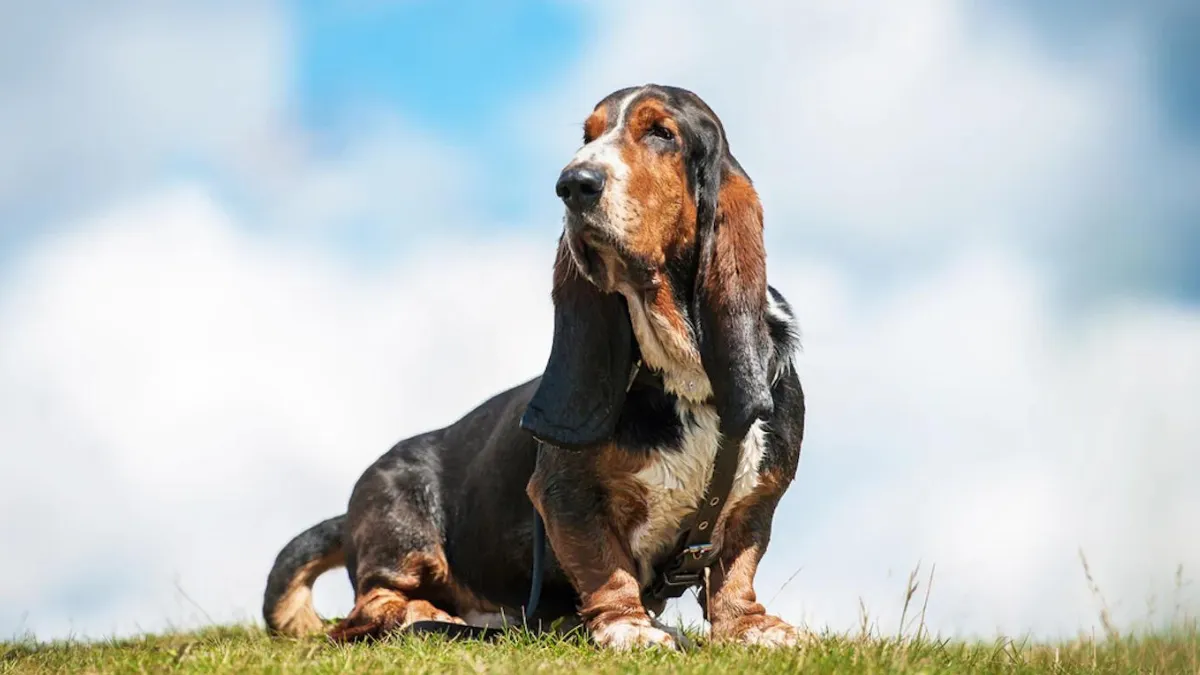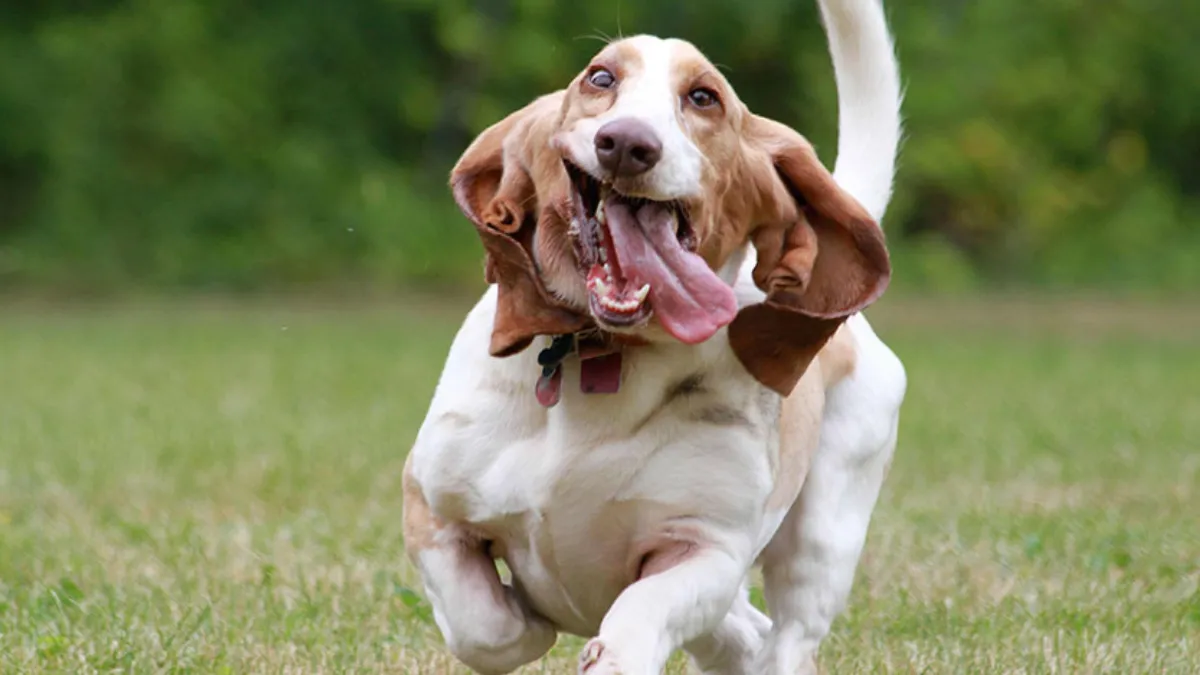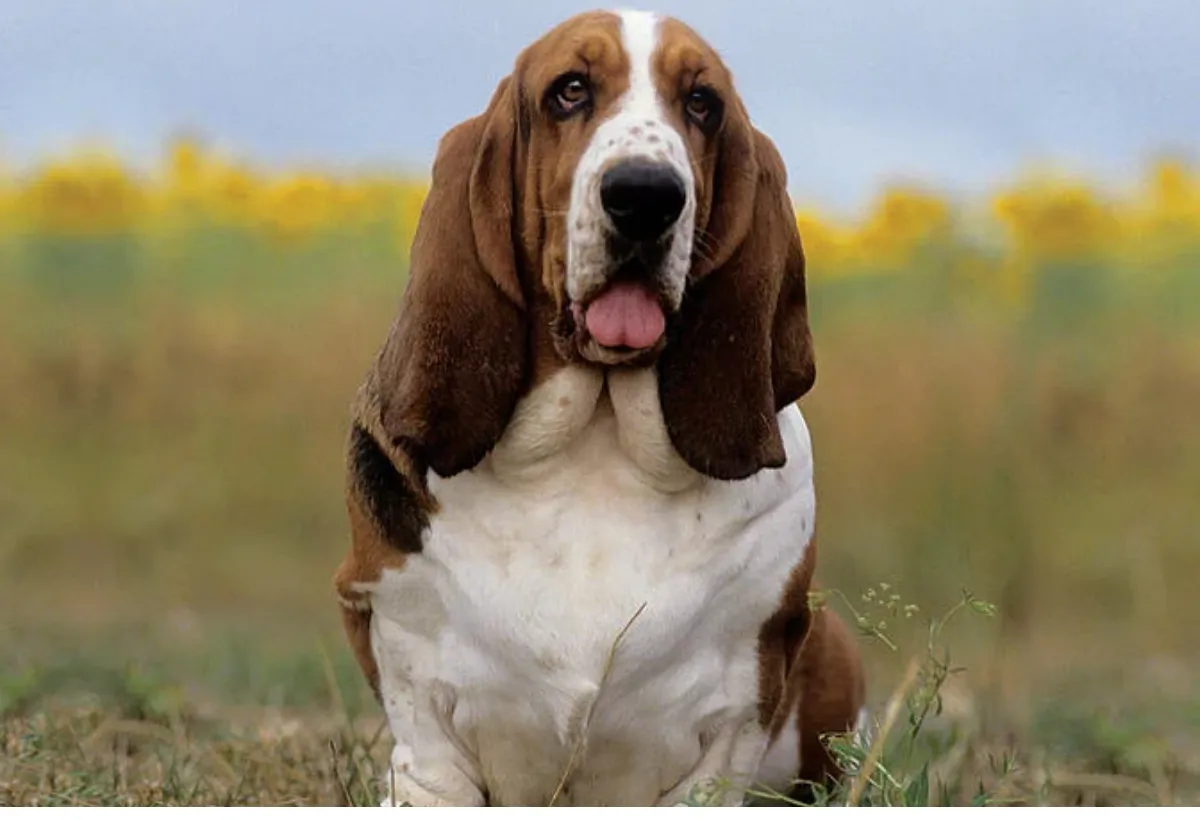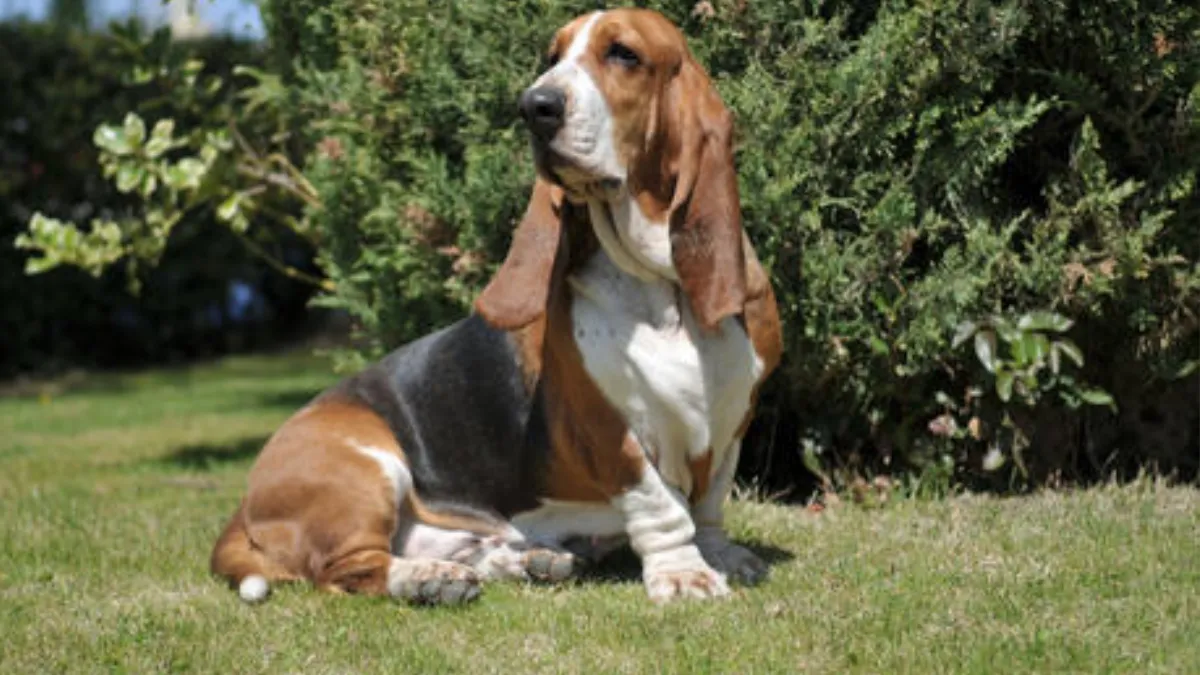Basset Hounds, renowned for their unique traits and amiable nature, often raises the question: Are Basset Hounds loud? Addressing this query isn't a straightforward yes or no, as multiple factors influence a Basset Hound's noise level. Understanding these variables is crucial for potential owners seeking insight into the vocal tendencies of this beloved breed.
First and foremost, it is important to understand that basset hounds are a breed that is known for their vocalizations. They were originally bred for hunting purposes, and their loud baying was used to alert their owners to the presence of game. This means that basset hounds are naturally inclined to be noisy, and may bark or howl more frequently than other breeds. However, this does not mean that all basset hounds are loud, as individual personalities can vary greatly.
In addition to their breed tendencies, a basset hound's noise level can also be influenced by their environment and training. For example, a basset hound that is left alone for long periods may bark more frequently out of boredom or anxiety. On the other hand, a well-trained basset hound may be less likely to bark excessively, as they have learned to respond to commands and cues from their owner. Overall, potential basset hound owners need to understand that while the breed may be prone to vocalizations, a basset hound's noise level can be managed through proper training and care.

Basset Hound Origins and History
The Basset Hound is a breed of dog that originated in France. The breed was developed by crossing different types of French hounds, including the Bloodhound, to create a dog with a keen sense of smell and a short, stocky build.
From France to the World
The breed's name comes from the French word "bas," which means low. This refers to the Basset Hound's short legs and long body. The breed was first developed in the 16th century by the monks at the Abbey of St. Hubert in Belgium, who were known for breeding hounds for hunting purposes.
The Basset Hound quickly became popular with French hunters due to its excellent sense of smell and ability to track game through dense underbrush. The breed was eventually exported to other countries, including England and the United States.
Historical Roles
In the United States, the Basset Hound became popular in the early 20th century as a hunting dog and companion. The American Kennel Club recognized the breed in 1916, and it has since become a popular family pet thanks to its friendly and laid-back personality.
Interestingly, Basset Hounds have also played a role in American history. George Washington was known to keep Basset Hounds at his Mount Vernon estate, and the breed was also featured in a famous advertising campaign for Hush Puppies shoes in the 1950s.
Overall, the Basset Hound's history is closely tied to its hunting roots in France, but the breed has since become beloved around the world for its unique appearance and friendly personality.

Physical Characteristics
Basset Hounds are a breed of dog that is known for their short legs, long ears, and droopy eyes. They have a sturdy and heavyset body that is low to the ground, making them an ideal breed for hunting small game. In this section, we will delve into the various physical characteristics of the Basset Hound that make them stand out from other breeds.
Distinctive Ears and Nose
One of the most notable features of the Basset Hound is their long, droopy ears. These ears, which can reach up to 10 inches in length, serve a practical purpose in helping to trap and funnel scents towards the dog's nose. Speaking of the nose, Basset Hounds have a keen sense of smell that is second to none. Their large, moist nose is capable of detecting even the faintest of scents, making them a popular choice for hunting and tracking.
Coat and Size
Basset Hounds have a short, dense coat that comes in a variety of colors, including black, white, tan, and brown. They are a medium-sized breed, typically weighing between 40 and 65 pounds and standing around 12 to 15 inches tall at the shoulder. Despite their compact size, Basset Hounds are surprisingly heavy and can be quite difficult to lift or move.
Common Health Concerns
Like all breeds of dogs, Basset Hounds are susceptible to certain health problems. One of the most common issues that affect Basset Hounds is obesity, which can lead to joint problems, hip dysplasia, and elbow dysplasia. Other health concerns include glaucoma, infections, and bloat. It is important for owners to keep their Basset Hounds at a healthy weight and to provide them with regular exercise to prevent these health problems from arising.
In conclusion, the Basset Hound is a unique and lovable breed that is known for their distinctive physical characteristics. From their long, droopy ears to their keen sense of smell, Basset Hounds have a lot to offer as a companion and hunting dogs. However, it is important for owners to be aware of the potential health concerns that can affect this breed and to take steps to prevent them from occurring.

Temperament and Behavior
Basset Hounds are known for their friendly and gentle nature, making them excellent family pets. They have a good-natured personality and are easygoing and peaceful. However, they can also be stubborn and independent, which can make training a challenge.
Personality Traits
Basset Hounds are loyal and affectionate dogs that enjoy spending time with their owners. They have a laid-back personality and are not typically high-energy dogs. They are known for their excellent sense of smell and love to follow their noses, which can sometimes lead to them getting into trouble.
Interaction with Children and Pets
Basset Hounds are generally good with children and other pets, although they can sometimes be a bit clumsy due to their long bodies and short legs. They are not typically aggressive dogs and are unlikely to bite or show aggression towards people or other animals. However, as with any dog, it is important to supervise interactions between children and pets to ensure everyone stays safe.
Overall, Basset Hounds make excellent family pets due to their friendly and gentle nature. While they can be a bit stubborn at times, they are generally easy to train and are loyal companions.

Basset Hound Vocalizations
Basset Hounds are known for their distinct vocalizations that can be heard from a distance. Their deep, melodic baying is often a source of amusement for their owners. However, it is important to understand the different types of vocalizations that Basset Hounds make and what they mean.
Understanding Barking and Baying
Barking is a common vocalization for dogs, and Basset Hounds are no exception. They bark to alert their owners of potential danger, to express excitement, or to communicate their needs. Basset Hounds have a deep, loud bark that can be heard from far away. However, they are not known for excessive barking.
Baying, on the other hand, is a unique vocalization that is specific to hound breeds like the Basset Hound. Baying is a long, drawn-out howl that is used to alert other dogs and hunters of their location. Basset Hounds were originally bred to hunt small game-like rabbits, and their bay is an important tool for tracking and hunting.
It is important to note that Basset Hounds are not necessarily loud dogs. While their baying can be heard from a distance, they are not known for excessive barking or making unnecessary noise. However, they do require regular exercise and mental stimulation to prevent boredom and excessive vocalization.
In conclusion, Basset Hounds have a unique and distinct vocalization in the form of their baying. While they are not known for excessive barking, owners need to understand their vocalizations and what they mean. Regular exercise and mental stimulation can help prevent excessive vocalization in Basset Hounds.
Care and Grooming
Basset Hounds are known for their droopy eyes, ears, and lips, which can make them prone to certain health issues. Proper care and grooming can help prevent these issues and keep your Basset Hound healthy and happy.
Nutrition and Diet
Basset Hounds tend to become overweight, so it's important to monitor their food intake and provide them with a balanced diet. A high-quality dog food that is appropriate for their age and activity level is recommended. It's also important to avoid overfeeding and to limit table scraps and treats.
Exercise Needs
While Basset Hounds are not high-energy dogs, they still require regular exercise to prevent obesity and keep their muscles toned. Daily walks and playtime in a fenced yard are recommended. However, it's important to avoid overexertion, as Basset Hounds are prone to joint problems.
Grooming Essentials
Basset Hounds have a short, dense coat that sheds moderately year-round. Regular brushing can help control shedding and keep the coat healthy and shiny. They also require regular ear cleaning to prevent infections, as their droopy ears can trap moisture and debris. Additionally, their droopy lips and eyes can collect drool and dirt, so it's important to wipe their face and mouth regularly.
Overall, Basset Hounds are relatively low-maintenance dogs, but proper care and grooming are essential to their health and well-being.toward By providing them with a balanced diet, regular exercise, and regular grooming, you can help ensure that your Basset Hound lives a long, healthy life.

Training and Obedience
Training Challenges
Basset Hounds can be stubborn and independent, which can make training a challenge. They are known for their strong sense of smell and can easily get distracted by scents, making it difficult to keep their attention during training sessions. Additionally, their baying instinct can make them vocal and loud, which can be disruptive during training.
Consistency is key when training a Basset Hound. They respond best to positive reinforcement techniques such as treats, praise, and play. It is important to keep training sessions short and frequent, as they can become bored easily and lose interest.
Effective Training Techniques
Obedience training is crucial for Basset Hounds, especially when it comes to their baying instinct. Teaching them the "quiet" command can help reduce their vocalization during training and in everyday situations. It is also important to socialize them from a young age to prevent shyness or aggression toward other dogs and people.
Tracking and hunting are instincts for Basset Hounds, and they excel in these activities. Incorporating these instincts into their training can help keep them engaged and focused. However, it is important to ensure that they are trained in a safe and controlled environment.
When training a Basset Hound, it is important to remain patient and consistent. Avoid using harsh punishments or negative reinforcement, as this can lead to fear and aggression. Seek advice and information from experienced trainers or veterinarians to ensure that training is effective and humane.
Basset Hound as Family Dogs
Basset Hounds are a popular breed for families due to their sweet and lovable nature. They are known for being playful and affectionate, making them great companions for both children and adults. In this section, we will explore what it's like to adopt and live with a Basset Hound.
Adopting a Basset Hound
When looking to adopt a Basset Hound, it's important to do your research and find a reputable rescue group or breeder. The Basset Hound Club of America is a great resource for finding reputable breeders and rescue groups in your area.
When adopting a Basset Hound, it's important to consider their age. Puppies require more attention and training, while adult dogs may already be trained and socialized. However, both can make great family pets with the right care and attention.
Living with a Basset Hound
Basset Hounds are known for their loud baying and howling, which can be a concern for some families. However, with proper training and socialization, this behavior can be managed. It's important to provide plenty of exercise and mental stimulation to prevent boredom and destructive behavior.
Basset Hounds are also prone to obesity, so it's important to monitor their diet and exercise levels. They are generally low-energy dogs but still require daily walks and playtime.
In summary, Basset Hounds can make great family pets with the right care and attention. Whether adopting a puppy or an adult dog, it's important to find a reputable rescue group or breeder. With proper training, socialization, and exercise, Basset Hounds can be loving and playful companions for years to come.

Health and Breeding
Recognizing Responsible Breeders
When looking for a Basset Hound breeder, it is important to find a responsible one who prioritizes the health and well-being of their dogs. A good breeder will ensure that their dogs are properly socialized and receive regular veterinary care. They will also be knowledgeable about the breed and willing to answer any questions you may have.
One way to identify a responsible breeder is to check if they are registered with the American Kennel Club (AKC). The AKC has strict guidelines for breeders, and being registered with them is a good indicator that the breeder is reputable.
Common Genetic Issues
Like all breeds, Basset Hounds are prone to certain genetic health issues. One such issue is thrombophilia, a blood clotting disorder that can cause excessive bleeding. Responsible breeders will test their dogs for this condition and only breed dogs that are not carriers.
Another common issue in Basset Hounds is anxiety, which can lead to destructive behavior if not properly addressed. Owners should work with their veterinarian to develop a plan to manage their dog's anxiety.
Basset Hounds are also prone to weight gain, which can lead to health problems such as joint pain and diabetes. Owners need to monitor their dog's diet and exercise to ensure they maintain a healthy weight.
Overall, finding a responsible breeder and being aware of common genetic issues can help ensure that your Basset Hound is healthy and happy.
Conclusion:
In conclusion, the question "Are Basset Hounds loud?" doesn't have a definitive answer, as individual dogs vary in their vocal tendencies. While Basset Hounds are known for their distinctive baying, their noise level can be influenced by factors such as training, socialization, and the dog's unique personality.
Owners play a key role in shaping their Basset Hound's behavior and can mitigate excessive vocalization through proper training. Understanding and embracing the breed's characteristics, including their potential for vocalization, enables owners to foster a harmonious relationship, appreciating the charming traits that make Basset Hounds unique.
Frequently Asked Questions
- Do Basset Hounds bark frequently?
- Basset Hounds are known for their distinctive baying sound, which can be quite loud. However, they do not bark excessively and are generally not considered to be a particularly noisy breed. Like all dogs, they may bark to alert their owners to potential danger or to express excitement, but with proper training, this behavior can be managed.
- Can Basset Hounds be suitable for apartment living considering their noise levels?
- Basset Hounds are not typically recommended for apartment living due to their size and exercise needs, rather than their noise levels. However, with proper training and exercise, they can adapt to smaller living spaces. It's important to note that excessive barking can be a nuisance to neighbors, so it's important to address this behavior early on.
- What is the typical behavior of Basset Hounds at night?
- Basset Hounds are generally calm and docile at night and are known for their love of sleeping. However, they may become restless if they are not given enough exercise during the day. It's important to establish a regular exercise routine to ensure that they are tired and ready for sleep at night.
- Why do Basset Hounds have such long ears?
- Basset Hounds have long ears that serve a practical purpose. Their ears help to stir up scents and direct them towards their nose, which is important for their role as hunting dogs. The long ears also help to protect their sensitive ears from dirt and debris.
- What health issues are Basset Hounds prone to?
- Basset Hounds are prone to several health issues, including ear infections, hip dysplasia, and obesity. Regular vet check-ups and proper diet and exercise can help to prevent or manage these issues.
- How much does it typically cost to purchase a Basset Hound?
- The cost of a Basset Hound can vary depending on several factors, including the breeder, location, and pedigree. On average, a Basset Hound puppy can cost anywhere from $500 to $2,000. It's important to do research and find a reputable breeder to ensure that you are getting a healthy and well-socialized puppy.




